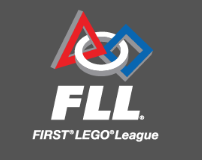 FIRST LEGO League is a robotics program for 9 to16 year olds designed to get young learners interested in and enthsed by science and technology — and teach them valuable employment and life skills.
FIRST LEGO League is a robotics program for 9 to16 year olds designed to get young learners interested in and enthsed by science and technology — and teach them valuable employment and life skills.
It can be used in the classroom or teams, composed of up to ten children with at least one adult coach, can come from a club or organisation who just want to participate in a challenge.
In First Lego League learners need to think like scientists and engineers as they programme a robot (using the LEGO® MINDSTORMS® robot set) to score points, devising a solution to a problem as part of their project, all while being guided by the FLL Core Values.
These three elements – the Robot Game, Project, and FLL Core Values – make up the Challenge.
Registration will open soon for the 2014 First Lego League World Class Challenge, What is the future of learning? exploring how we gather knowledge and develop skills in the 21st Century.
For more information: http://www.firstlegoleague.org/mission/support#sthash.PAN7FUy8.dpuf











